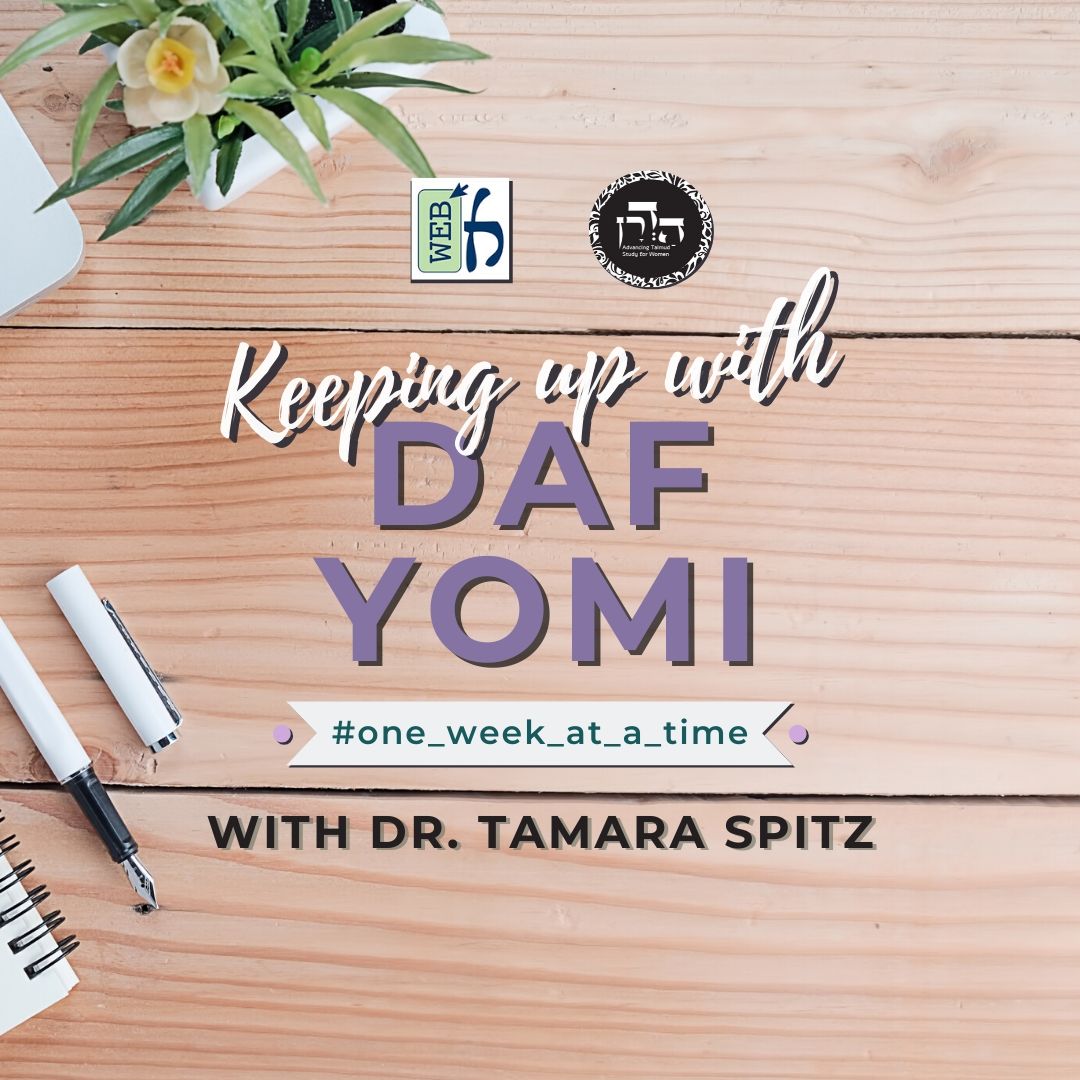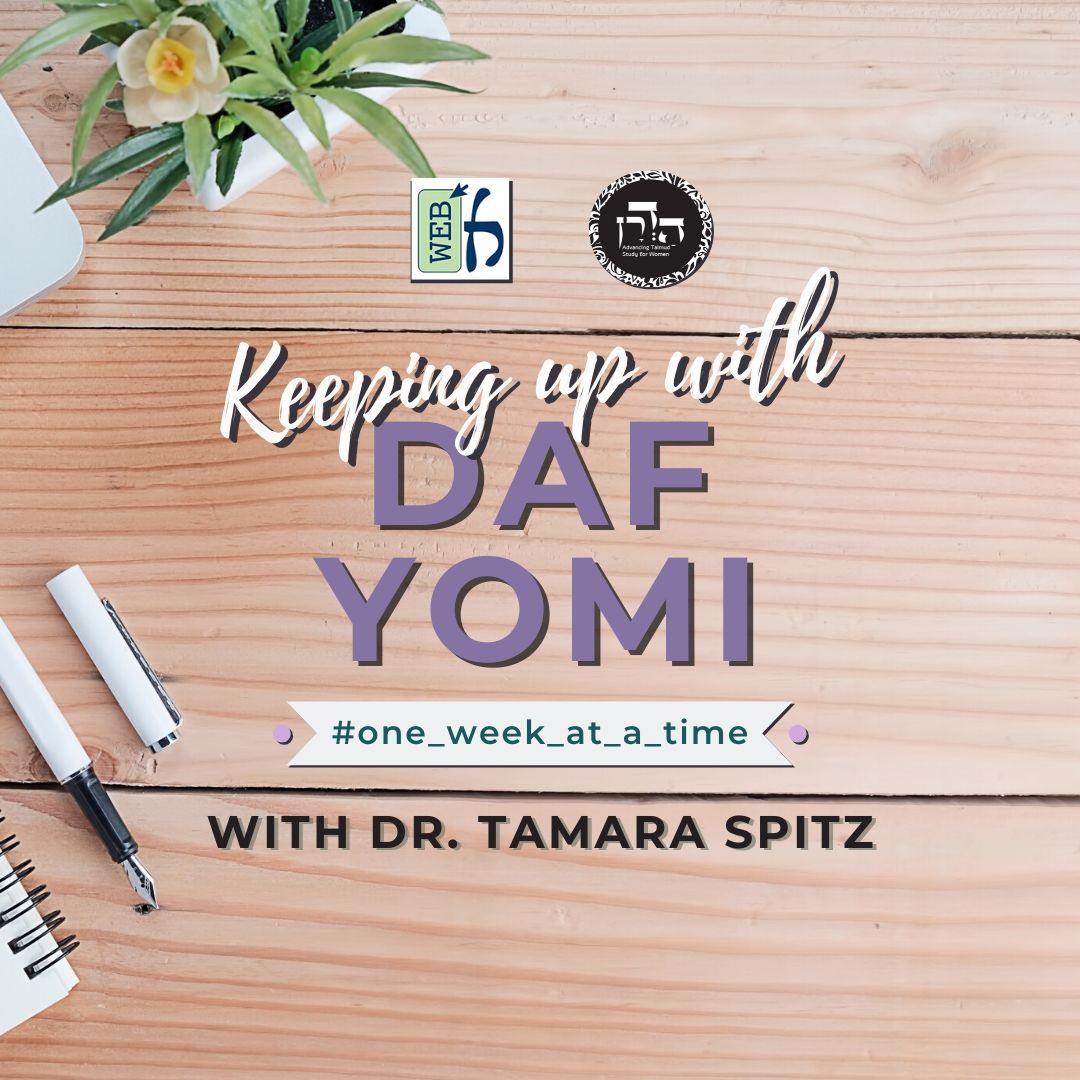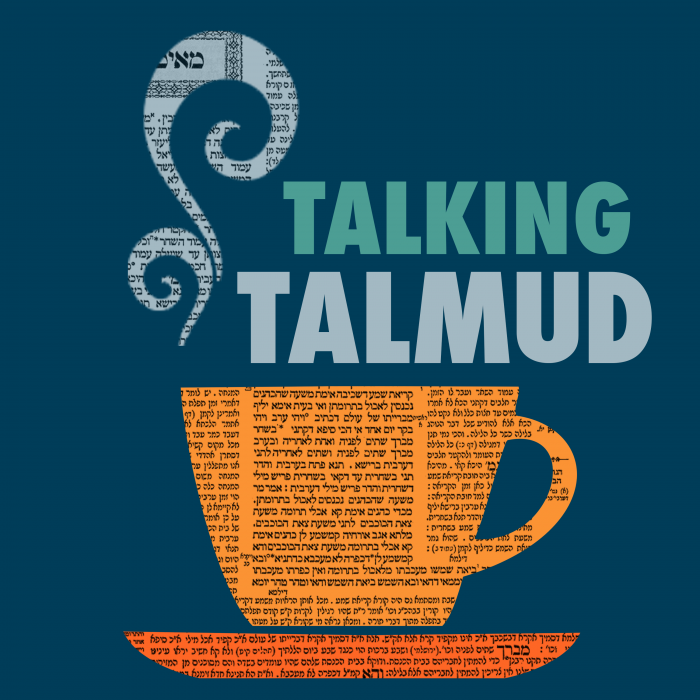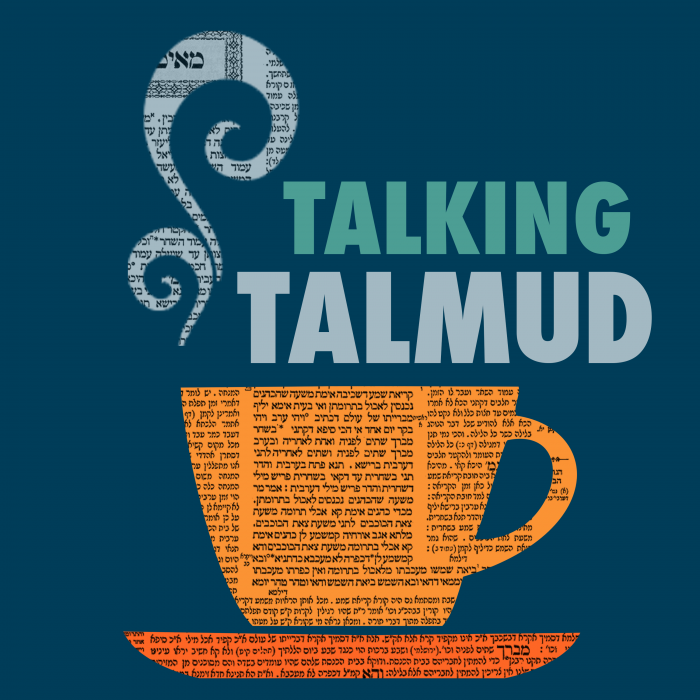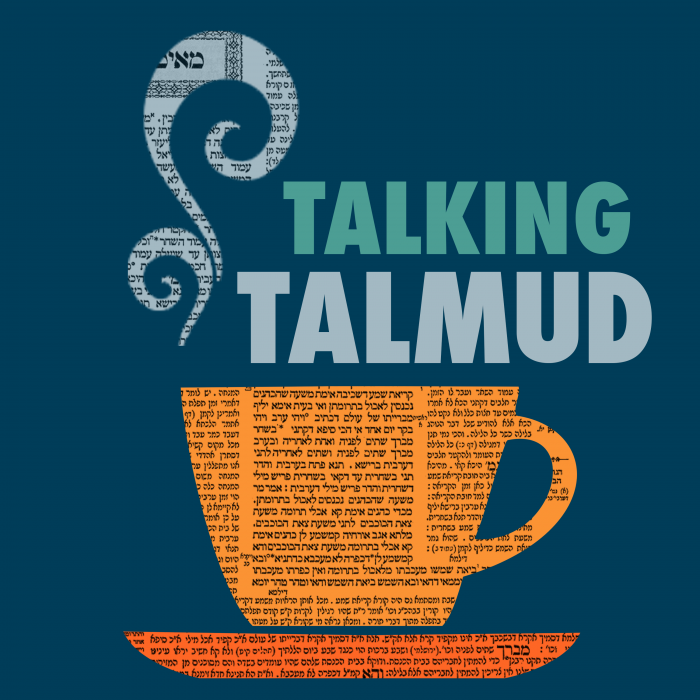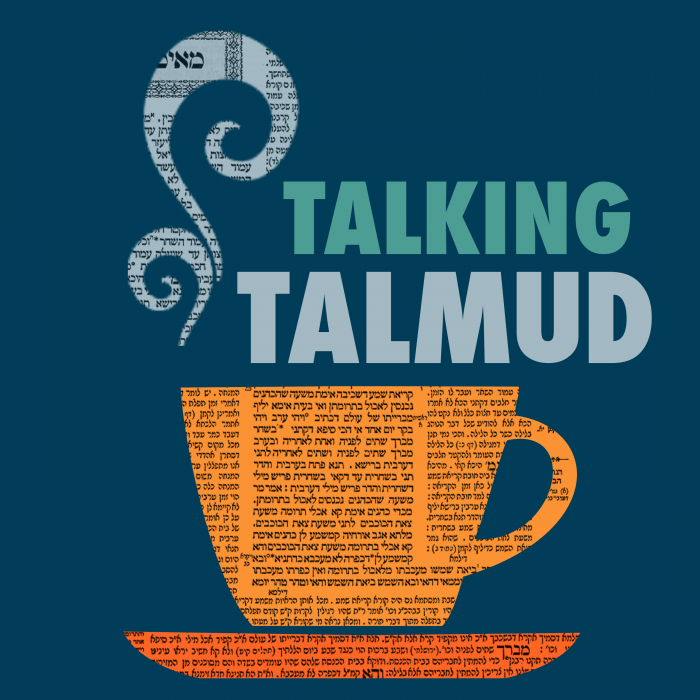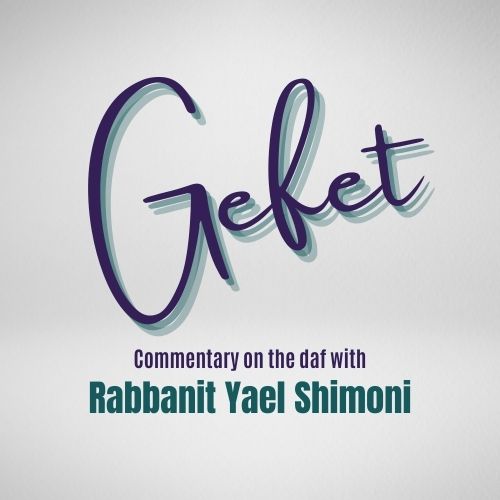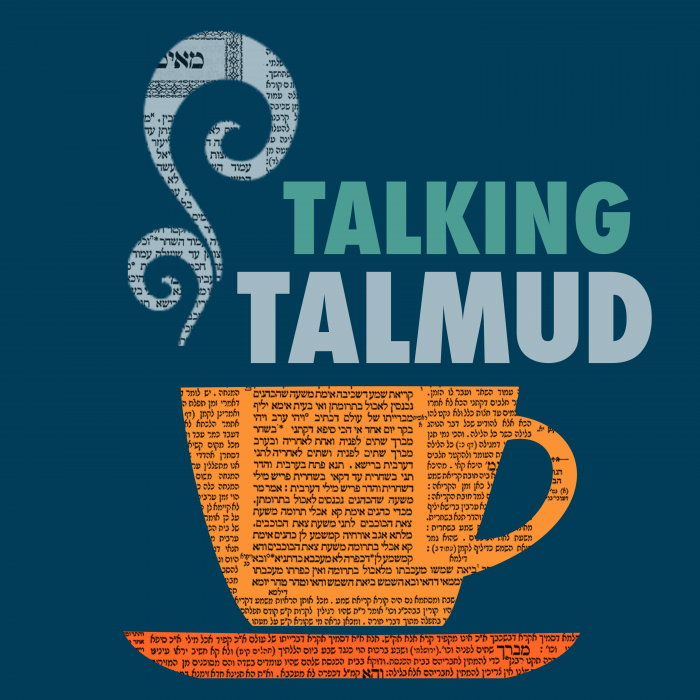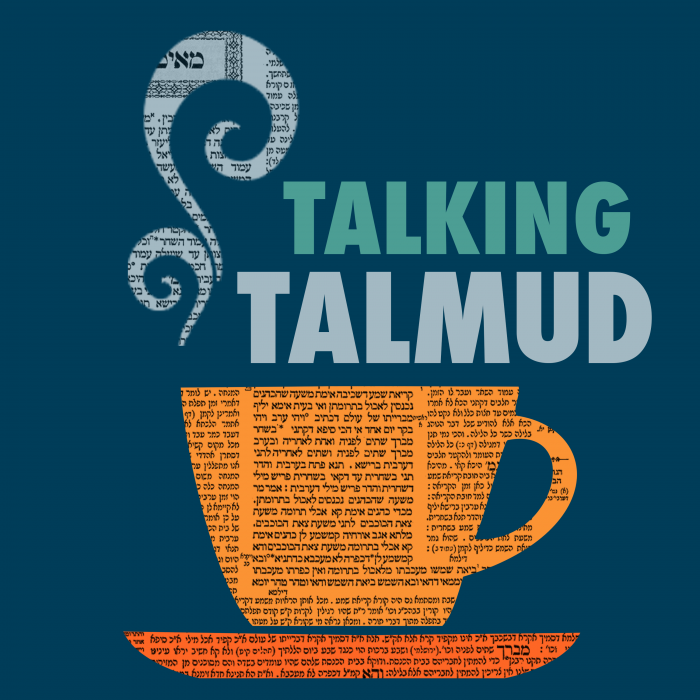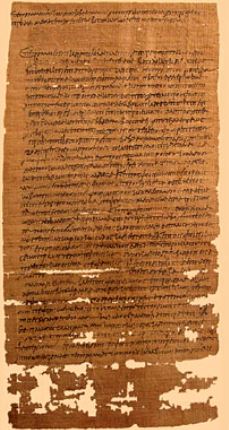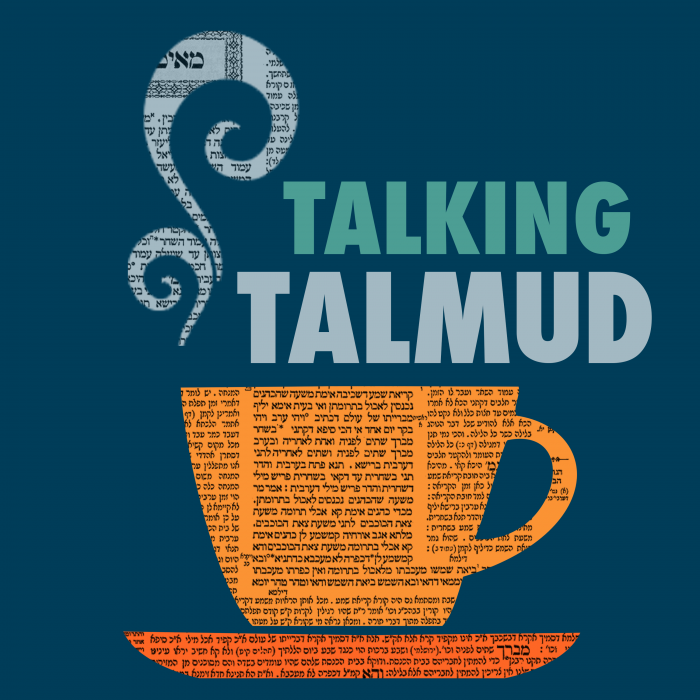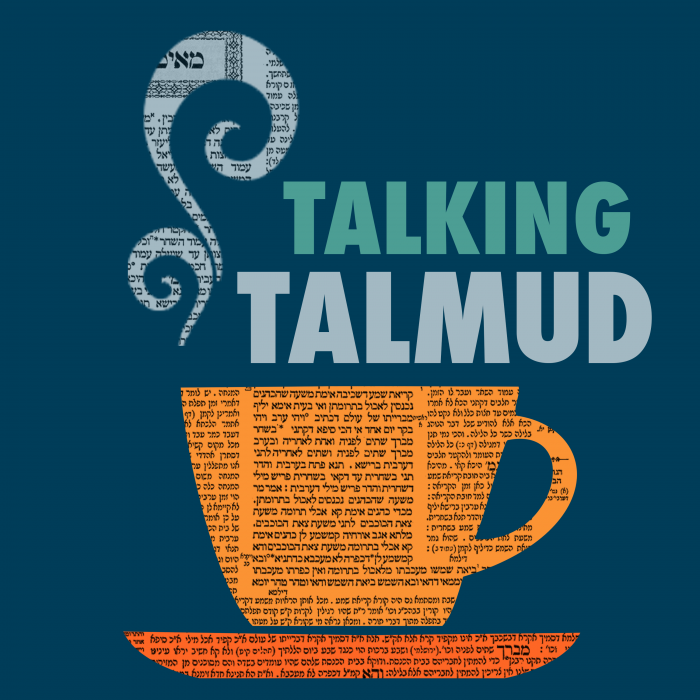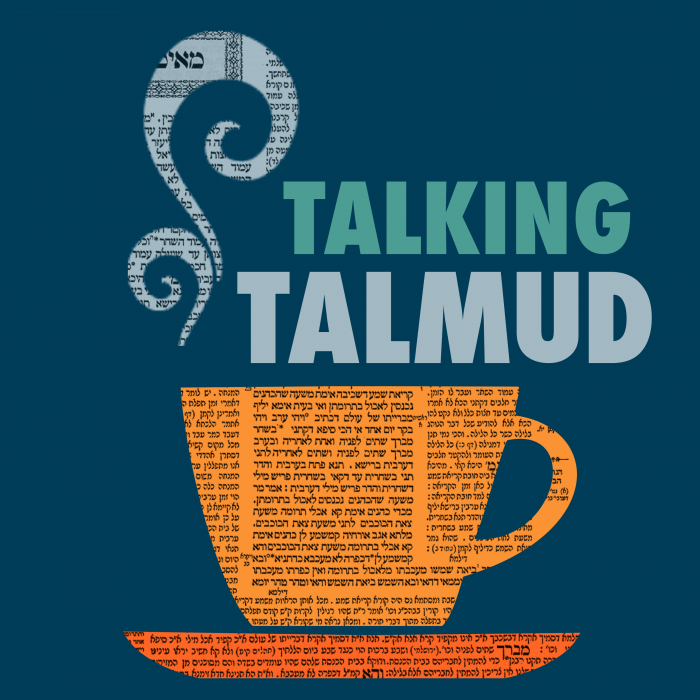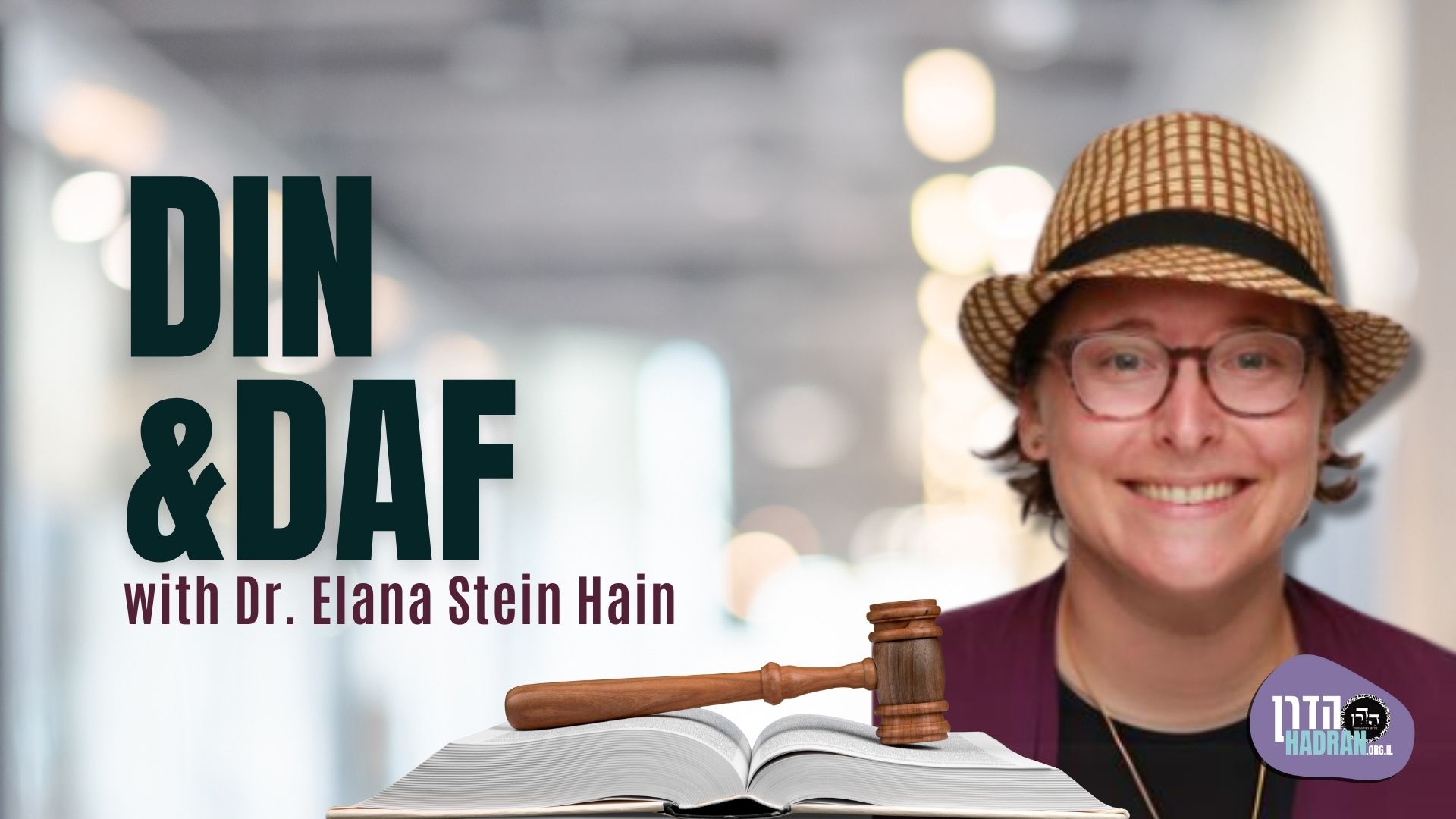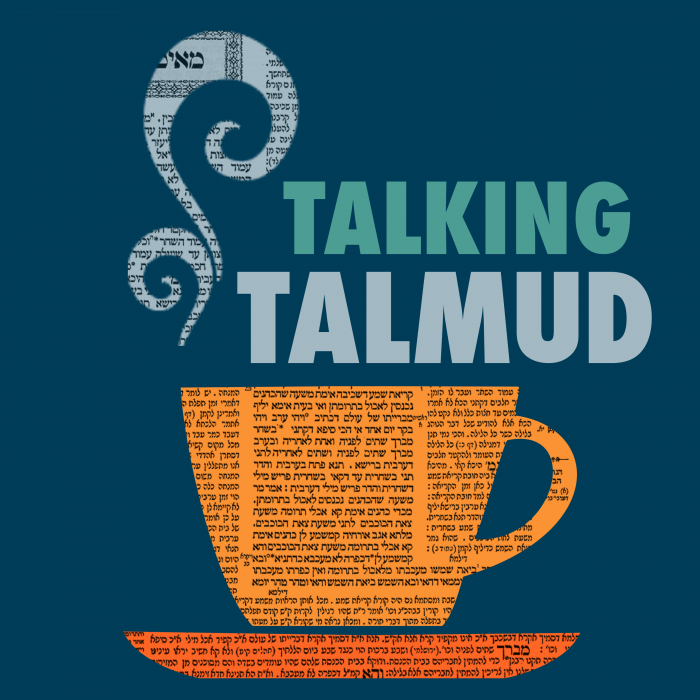The gemara continues to discuss the status of bloods that are not forbidden with karet – are they forbidden in some way? What are the stages of bloodletting – the blood from which stages are forbidden with karet? Is the blood that comes out after the first main blood spurt from a slaughter of an animal (hatamtzit) forbidden? Can it be brought on the altar to atone? Are these two questions connected? Can one bring a provisional guilt offering on a case of doubt of meilah? If so, how does one go about doing it? If one eventually realizes that one did sin, does one need to bring a guilt offering for the meilah? What is the root of the debate regarding whether or not there is a provisional guilt offering for a case of doubt of meilah?
This week’s learning is sponsored for the merit and safety of Haymanut (Emuna) Kasau, who was 9 years old when she disappeared from her home in Tzfat two years ago, on the 16th of Adar, 5784 (February 25, 2024), and whose whereabouts remain unknown.
This week’s learning is dedicated of the safety of our nation, the soldiers and citizens of Israel, and for the liberation of the Iranian people. May we soon see the realization of “ליהודים היתה אורה ושמחה וששון ויקר”.
Want to dedicate learning? Get started here:


Today’s daily daf tools:
This week’s learning is sponsored for the merit and safety of Haymanut (Emuna) Kasau, who was 9 years old when she disappeared from her home in Tzfat two years ago, on the 16th of Adar, 5784 (February 25, 2024), and whose whereabouts remain unknown.
This week’s learning is dedicated of the safety of our nation, the soldiers and citizens of Israel, and for the liberation of the Iranian people. May we soon see the realization of “ליהודים היתה אורה ושמחה וששון ויקר”.
Today’s daily daf tools:
Delve Deeper
Broaden your understanding of the topics on this daf with classes and podcasts from top women Talmud scholars.
New to Talmud?
Check out our resources designed to help you navigate a page of Talmud – and study at the pace, level and style that fits you.
The Hadran Women’s Tapestry
Meet the diverse women learning Gemara at Hadran and hear their stories.
Keritot 22
דְּפֵירַשׁ. כִּי קָאָמַר רַב – בִּדְלָא פֵּירַשׁ, כִּדְתַנְיָא: דָּם שֶׁעַל גַּבֵּי כִּכָּר – גּוֹרְרוֹ וְאוֹכְלוֹ, שֶׁל בֵּין הַשִּׁינַּיִם – מוֹצֵץ וּבוֹלֵעַ וְאֵינוֹ חוֹשֵׁשׁ.
where the blood was separated from a person. By contrast, when Rav Sheshet said that one need not abstain from human blood even ab initio, he was referring to a case where it was not separated from a person. As it is taught in a baraita: If blood was on a loaf of bread, one may scrape off the blood and then consume the bread. If blood was between the teeth, he may suck it and swallow it without concern.
אִיכָּא דְמַתְנֵי לַהּ לְהָא דְּרַב שֵׁשֶׁת עַל הָדָא, דְּתַנְיָא: יָכוֹל חֲלֵב מְהַלְּכֵי שְׁתַּיִם יְהֵא אוֹכְלוֹ עוֹבֵר בְּלָאו? וְדִין הוּא: מָה בְּהֵמָה טְמֵאָה שֶׁהֵקַלְתָּה בְּמַגָּעָהּ, הֶחְמַרְתָּה בַּחֲלָבָהּ, מְהַלְּכֵי שְׁתַּיִם שֶׁהֶחְמַרְתָּה בְּמַגָּעָן – אֵינוֹ דִּין שֶׁתַּחְמִיר בַּחֲלָבָן?
Some teach this statement of Rav Sheshet with regard to this baraita, as it is taught: One might have thought that one who consumes the milk of bipeds would violate a prohibition. And this conclusion could be derived based upon a logical inference: Just as with regard to a non-kosher animal, where you were lenient with regard to its contact, i.e., it cannot render people or items impure through contact when it is alive, you were stringent with regard to its milk, which is prohibited, so too in the case of bipeds, where you were stringent with regard to their contact, as living people can render other people and objects impure, isn’t it logical that you should be stringent with regard to their milk?
תַּלְמוּד לוֹמַר: ״וְזֶה לָכֶם הַטָּמֵא״ – זֶה טָמֵא, וְאֵין חֲלֵב מְהַלְּכֵי שְׁתַּיִם טָמֵא אֶלָּא טָהוֹר.
Therefore, the verse states: “And these are they which are impure to you” (Leviticus 11:29), which indicates that these animals enumerated in that chapter are non-kosher and their milk is forbidden for consumption, but the milk of bipeds is not impure but rather pure, i.e., kosher.
אוֹצִיא אֶת הֶחָלָב, שֶׁאֵין שָׁוֶה בַּכֹּל, וְלֹא אוֹצִיא הַדָּם שֶׁשָּׁוֶה בַּכֹּל! תַּלְמוּד לוֹמַר: ״וְזֶה לָכֶם הַטָּמֵא״ – זֶה טָמֵא, וְאֵין דַּם מְהַלְּכֵי שְׁתַּיִם טָמֵא אֶלָּא טָהוֹר. אָמַר (לה) רַב שֵׁשֶׁת: אֲפִילּוּ מִצְוַת פְּרוֹשׁ אֵין בּוֹ.
Furthermore, one might have thought that I should exclude only the milk of women from forbidden status, as the forbidden status of milk does not apply equally to all creatures, since the milk of kosher animals is permitted, but I should not exclude human blood from the prohibition against consuming blood, which does apply equally to all creatures, since even the blood of kosher animals is forbidden. Consequently, the verse states: “And these are they which are impure to you,” which indicates that this is impure, but the blood of bipeds is not impure but rather pure, i.e., kosher. It was in this context that Rav Sheshet said: With regard to the blood of bipeds, there is not even a command to abstain from consuming it ab initio.
תְּנַן הָתָם: הַלֵּב, קוֹרְעוֹ וּמוֹצִיא אֶת דָּמוֹ, לֹא קְרָעוֹ – אֵינוֹ עוֹבֵר עָלָיו. אָמַר רַבִּי זֵירָא אָמַר רַב: לֹא שָׁנוּ אֶלָּא בְּלֵב עוֹף, הוֹאִיל וְאֵין בּוֹ כְּזַיִת, אֲבָל לֵב בְּהֵמָה דְּיֵשׁ בּוֹ כְּזַיִת – אָסוּר, וְחַיָּיבִין עָלָיו כָּרֵת.
§ We learned in a mishna there (Ḥullin 109a): One who wants to eat the heart of a slaughtered animal tears it and removes its blood, and only then may he cook it and eat it. If he did not tear the heart before cooking it and he ate it, he does not violate the prohibition and is not liable to receive karet for consuming blood. The Gemara comments: Rabbi Zeira says that Rav says: They taught this only with regard to the heart of a bird, since it does not contain an olive-bulk of blood. But the heart of an animal, which does contain an olive-bulk of blood, is forbidden and one is liable to receive karet for its consumption.
מֵיתִיבִי: דַּם הַטְּחוֹל, דַּם הַלֵּב, דַּם הַכְּלָיוֹת, דַּם אֵבָרִים – הֲרֵי אֵלּוּ בְּלֹא תַעֲשֶׂה. דַּם מְהַלְּכֵי שְׁתַּיִם, דַּם שְׁקָצִים וּרְמָשִׂים – אָסוּר, וְאֵין חַיָּיבִין עָלָיו!
The Gemara raises an objection from a baraita cited above: With regard to blood of the spleen, blood of the heart, blood of the kidneys, and blood of limbs, all these are forbidden for consumption by a regular prohibition, punishable by lashes, but their consumption is not punishable by karet. By contrast, the blood of bipeds, i.e., human beings, and the blood of repugnant creatures and crawling things are forbidden but one is not liable for their consumption. This proves that one is not liable to receive karet for consuming the blood of the heart.
כִּי קָתָנֵי ״אֵין חַיָּיבִין עָלָיו״ – עַל דָּם דִּילֵיהּ, כִּי קָאָמַר רַב – דְּאָתֵי לֵיהּ מֵעָלְמָא.
The Gemara answers that when the baraita teaches that one is not liable for consuming the blood of the heart, it is referring to its own blood, i.e., the blood absorbed in the walls of the heart. By contrast, when Rav said that one is liable to receive karet, he was referring to blood that comes from the outside, i.e., from elsewhere in the body, and which is found in the cavity of the heart.
דָּם דִּילֵיהּ – הַיְינוּ דַּם אֵבָרִים! וְלִיטַעְמָיךְ, מִי לָא קָתָנֵי דַּם כְּלָיוֹת וְקָתָנֵי דַּם אֵבָרִים? אֶלָּא: תָּנֵי וַהֲדַר תָּנֵי – הָכָא נָמֵי, תָּנֵי וַהֲדַר תָּנֵי.
The Gemara challenges: Its own blood is the same as the blood of limbs, which is already included in the list. What is the difference between the blood absorbed in the walls of the heart and blood absorbed in any other limb? The Gemara responds: And according to your reasoning, doesn’t the baraita teach the halakha with regard to the blood of the kidneys, and yet it also teaches the halakha with regard to the blood of limbs? Rather, the baraita teaches the halakha with regard to the blood of the kidneys, and then teaches the principle with regard to the blood of limbs. Here too, the baraita teaches the halakha with regard to the blood of the heart, and then teaches the principle with regard to the blood of limbs.
מֵעָלְמָא מֵהֵיכָא אָתֵי לֵיהּ? אָמַר רַבִּי זֵירָא: בְּשָׁעָה שֶׁהַנְּשָׁמָה יוֹצְאָה מִישְׂרָף שָׂרֵיף.
The Gemara asks: From where does blood come to the heart from outside? Rabbi Zeira said: At the time when the soul departs, i.e., when the animal is dying, the heart draws [sharif ] blood from elsewhere, and one is liable to receive karet for consuming this blood.
דָּם שֶׁהַנְּשָׁמָה יוֹצְאָה בּוֹ – חַיָּיבִין עָלָיו. אִיתְּמַר: אֵיזֶהוּ דַּם הַקָּזָה שֶׁהַנְּשָׁמָה תְּלוּיָה בּוֹ? רַבִּי יוֹחָנָן אָמַר: כׇּל זְמַן שֶׁמְּקַלֵּחַ. רֵישׁ לָקִישׁ אָמַר: מִטִּיפָּה הַמַּשְׁחֶרֶת וְאֵילָךְ.
§ The mishna teaches: With regard to blood that spurted during bloodletting with which the soul departs, one is liable to receive karet for consuming it intentionally or to bring a sin offering for consuming it unwittingly. It was stated: What is defined as the blood that spurts during bloodletting upon which the soul depends, whose consumption entails karet? Rabbi Yoḥanan says: As long as it is spurting forcefully, it is included in this category of blood. Reish Lakish says: From the last black drop and onward, i.e., even before the blood spurts out forcefully, it is included in this category. The first drops of blood are black, and once these have ended and the first red drops have begun to emerge, it is the blood upon which the soul depends.
מֵיתִיבִי: אֵיזֶהוּ דַּם הַקָּזָה שֶׁהַנְּשָׁמָה יוֹצְאָה בּוֹ? כׇּל זְמַן שֶׁמְּקַלֵּחַ. יָצָא דַּם הַתַּמְצִית, מִפְּנֵי שֶׁהוּא שׁוֹתֵת. מַאי לַָאו אֲפִילּוּ רִאשׁוֹן וְאַחֲרוֹן, דְּשׁוֹתֵת הוּא – כְּדַם הַתַּמְצִית דָּמֵי? תְּיוּבְתָּא דְּרֵישׁ לָקִישׁ!
The Gemara raises an objection from a baraita: What is defined as blood that spurts during bloodletting with which the soul departs? As long as it is spurting forcefully, it is considered this type of blood. This excludes blood of exudate, i.e., that oozes from the animal after the spurt concludes, because at this stage the blood merely flows rather than spurting forcefully. The Gemara infers: What, is it not correct to say that even with regard to the first and last appearances of blood to emerge, if it flows it is considered as blood of exudate? This is apparently a conclusive refutation of the opinion of Reish Lakish.
לָא, לְמַעוֹטֵי דָּם הַמַּשְׁחִיר, אֲבָל דָּם רִאשׁוֹן וְאַחֲרוֹן, אַף עַל גַּב דְּהוּא שׁוֹתֵת – הַיְינוּ דַּם הַנֶּפֶשׁ.
The Gemara answers: No, the baraita serves to exclude only black blood; but with regard to the first and last appearances of red blood, which emerge, respectively, after the black blood but before the blood spurts and after the blood is no longer spurting forcefully, even though it flows, this is considered blood with which the soul departs.
מֵיתִיבִי: אֵיזֶהוּ דָּם רִאשׁוֹן? כׇּל זְמַן שֶׁמְּקַלֵּחַ. יָצָא רִאשׁוֹן וְאַחֲרוֹן, מִפְּנֵי שֶׁהוּא שׁוֹתֵת. תְּיוּבְתֵּיהּ דְּרֵישׁ לָקִישׁ! אָמַר לָךְ: תַּנָּאֵי הִיא, דְּתַנְיָא: אֵיזֶהוּ דַּם הַנֶּפֶשׁ? כׇּל זְמַן שֶׁמְּקַלֵּחַ, דִּבְרֵי רַבִּי אֶלְעָזָר. רַבִּי שִׁמְעוֹן אוֹמֵר: מִטִּיפָּה הַמַּשְׁחֶרֶת וְאֵילָךְ.
The Gemara raises an objection from a different baraita: What is defined as the first appearance of blood? As long as it is spurting forcefully, it is considered the first appearance of blood. This excludes the first and last appearances of blood, because that blood flows. This is apparently a conclusive refutation of the opinion of Reish Lakish. The Gemara answers: Reish Lakish could say to you that this matter is a dispute between tanna’im, as it is taught in a baraita: What is the blood with which the soul departs? As long as it is spurting out, it is considered this type of blood; this is the statement of Rabbi Elazar. Rabbi Shimon says: From the last black drop and onward it is considered blood with which the soul departs.
תָּנָא דְּבֵי רַבִּי יִשְׁמָעֵאל: ״וְדַם חֲלָלִים יִשְׁתֶּה״, פְּרָט לְדָם קִילּוּחַ שֶׁאֵינוֹ מַכְשִׁיר אֶת הַזְּרָעִים.
The Gemara mentions a related halakha involving blood. The school of Rabbi Yishmael taught: “And drinks the blood of the slain” (Numbers 23:24). This teaches that the blood that is considered a halakhically recognized liquid, and therefore renders other items susceptible to ritual impurity, is only blood that is exuded after death. This serves to exclude blood that spurts out forcefully at the time of the slaughter, before the animal is actually dead. Consequently, this type of blood does not render seeds susceptible to ritual impurity.
בְּעָא מִינֵּיהּ רַבִּי יִרְמְיָה מֵרַבִּי זֵירָא: הִקִּיז דָּם לִבְהֵמָה וְקִיבֵּל דָּמָהּ בִּשְׁנֵי כוֹסוֹת, מַהוּ? עַל הָרִאשׁוֹן – דִּבְרֵי הַכֹּל חַיָּיב, עַל הָאַחֲרוֹן – מִי מִיחַיַּיב אוֹ לָא?
§ The Gemara returns to the prohibition against consuming blood. Rabbi Yirmeya raised a dilemma before Rabbi Zeira: If one performed bloodletting upon an animal and received its blood in two cups, from which he drank, what is the halakha? With regard to the first cup, everyone agrees that he is liable, as it contains blood that spurted forcefully. With regard to the last cup, which does not contain blood that spurted forcefully from the animal, is he liable or not?
אֲמַר לֵיהּ: פְּלוּגְתָּא דְּרַבִּי יוֹחָנָן וְרֵישׁ לָקִישׁ, דְּאִיתְּמַר: הִקִּיז דָּם לִבְהֵמָה וְקִיבֵּל דָּמָהּ בִּשְׁנֵי כוֹסוֹת – רֵישׁ לָקִישׁ אָמַר: חַיָּיב שְׁתֵּי חַטָּאוֹת. וְרַבִּי יוֹחָנָן אָמַר: אֵינוֹ חַיָּיב אֶלָּא אַחַת.
Rabbi Zeira said to him: This is a dispute between Rabbi Yoḥanan and Reish Lakish, as it was stated: If one performed bloodletting upon an animal and received its blood in two cups, Reish Lakish says that he is liable to bring two sin offerings if he drank the contents of the cups in two lapses of awareness, as one is liable to receive karet even for blood that emerges after spurting; and Rabbi Yoḥanan says he is liable to bring only one sin offering, for the blood in the first cup.
רַבִּי יְהוּדָה מְחַיֵּיב בְּדַם הַתַּמְצִית. אָמַר רַבִּי אֶלְעָזָר: מוֹדֶה רַבִּי יְהוּדָה לְעִנְיַן כַּפָּרָה, שֶׁנֶּאֱמַר: ״כִּי הַדָּם הוּא בַּנֶּפֶשׁ יְכַפֵּר״ – דָּם שֶׁהַנֶּפֶשׁ יוֹצְאָה בּוֹ מְכַפֵּר, וְשֶׁאֵין הַנֶּפֶשׁ יוֹצְאָה בּוֹ אֵינוֹ מְכַפֵּר.
§ The mishna teaches that one is not liable for consuming blood of exudate, i.e., that oozes from the neck of the animal after the initial spurt of blood concludes. Rabbi Yehuda deems one liable in the case of blood of exudate. The Gemara adds that Rabbi Elazar says: Rabbi Yehuda concedes with regard to atonement that if one sacrifices an offering and the priest sprinkles the blood of exudate on the corners of the altar, the blood does not atone. This is as it is stated: “For it is the blood that makes atonement by reason of the soul” (Leviticus 17:11), which teaches that blood with which the soul departs, i.e., the blood that spurts immediately upon slaughter, atones, but blood with which the soul does not depart, i.e., the blood that drains out after the initial spurt, does not atone.
אָמַר רַב נַחְמָן בַּר יִצְחָק: אַף אֲנַן נָמֵי תְּנֵינָא, דְּתַנְיָא: ״דָּם״, מָה תַּלְמוּד לוֹמַר ״כׇּל דָּם״?
Rav Naḥman bar Yitzḥak said: We learn this in a baraita, as well, as it is taught in a baraita that the verse states: “And any man from the house of Israel, or from the stranger who resides among them, who consumes any blood, I will set My face against that soul that consumes blood, and will cut him off from among his people” (Leviticus 17:10). The verse could simply have stated “blood”; what is the meaning when the verse states “any blood”?
לְפִי שֶׁנֶּאֱמַר: ״כִּי הַדָּם הוּא בַּנֶּפֶשׁ יְכַפֵּר״, אֵין לִי אֶלָּא דַּם קָדָשִׁים שֶׁהַנֶּפֶשׁ יוֹצְאָה בּוֹ, שֶׁהוּא מְכַפֵּר, דַּם חוּלִּין וְדַם הַתַּמְצִית, מִנַּיִן? תַּלְמוּד לוֹמַר: ״כׇּל דָּם״. סְתָם סִיפְרָא מַנִּי? רַבִּי יְהוּדָה הִיא.
The baraita explains: Since it is stated: “For it is the blood that makes atonement by reason of the soul,” I have derived nothing other than the fact that consuming the blood of sacrificial animals with which the soul departs renders one liable to receive karet, as this blood atones. From where is it derived that the same applies to blood of non-sacred animals and blood of exudate? The verse states: “Any blood.” Who is presumed to be the author of any unattributed baraita found in the Sifra, a collection of halakhic midrash on Leviticus, which is the source of this baraita? It is Rabbi Yehuda. This proves that according to Rabbi Yehuda, blood of exudate does not effect atonement.
מַתְנִי׳ רַבִּי עֲקִיבָא מְחַיֵּיב עַל סְפֵק מְעִילָה אָשָׁם תָּלוּי, וַחֲכָמִים פּוֹטְרִים. וּמוֹדֶה רַבִּי עֲקִיבָא שֶׁאֵינוֹ מֵבִיא אֶת מְעִילָתוֹ עַד שֶׁיִּתְוַדַּע לוֹ שֶׁיָּבִיא עִמּוֹ אָשָׁם וַדַּאי.
MISHNA: This mishna resumes discussion of the provisional guilt offering addressed in the previous chapter. Rabbi Akiva deems one liable to bring a provisional guilt offering for a case where he is uncertain whether he is guilty of misuse of consecrated property, a transgression that renders one liable to bring a definite guilt offering (see Leviticus 5:15). And the Rabbis deem him exempt, as one brings a provisional guilt offering only in a case of uncertainty as to whether he is liable to bring a sin offering, not a guilt offering. And Rabbi Akiva concedes that one does not bring payment for his misuse until it becomes definitely known to him that he is guilty of misuse, as then he will bring a definite guilt offering with his payment.
אָמַר רַבִּי טַרְפוֹן: מָה לָזֶה מֵבִיא שְׁתֵּי אֲשָׁמוֹת? אֶלָּא מֵבִיא מְעִילָה וְחוּמְשָׁהּ, וְיָבִיא אָשָׁם בִּשְׁנֵי סְלָעִים, וְיֹאמַר: ״אִם וַדַּאי מָעַלְתִּי – זוֹ מְעִילָתִי וְזוֹ אֲשָׁמִי, וְאִם סָפֵק מָעַלְתִּי – הַמָּעוֹת נְדָבָה, וְאָשָׁם תָּלוּי״. שֶׁמִּמִּין שֶׁהוּא מֵבִיא עַל הוֹדַע, מֵבִיא עַל לֹא הוֹדַע.
Rabbi Tarfon said: For what purpose does that person bring two guilt offerings, one provisional and one definite? Rather, at the outset one brings the payment for misuse of consecrated property and its additional payment of one-fifth, as mandated by Torah law, and he will then bring a guilt offering worth two sela and say: If it is certain that I misused consecrated property, this is payment for my misuse and this is my definite guilt offering. And if it is uncertain whether I misused consecrated property, the money is a contribution to the Temple fund for the purchase of communal offerings and the guilt offering is provisional, as from the same type of animal that one brings a guilt offering for a case where it is known to him that he is guilty of misuse, he likewise brings a guilt offering for a case where it is unknown to him.
אָמַר רַבִּי עֲקִיבָא: נִרְאִין דְּבָרָיו בִּמְעִילָה מְעוּטָה. הֲרֵי שֶׁיָּבוֹא לְיָדוֹ סְפֵק מְעִילָה בְּמֵאָה מָנֶה, לֹא יָפֶה לוֹ שֶׁיָּבִיא אָשָׁם בִּשְׁתֵּי סְלָעִים, וְלֹא יָבִיא סְפֵק מְעִילָה בְּמֵאָה מָנֶה? מוֹדֶה רַבִּי עֲקִיבָא לְרַבִּי טַרְפוֹן בִּמְעִילָה מְעוּטָה.
Rabbi Akiva says: The statement of Rabbi Tarfon appears correct in the case of minimal misuse, but in a case where he is confronted with a case of uncertainty with regard to misuse valued at ten thousand dinars, would it not be preferable for him that he will now bring a provisional guilt offering valued at two sela and he will not bring payment now for uncertain misuse valued at ten thousand dinars? The mishna concludes: Apparently, Rabbi Akiva concedes to Rabbi Tarfon in the case of minimal misuse. He agrees that at the outset one brings payment for misuse and its additional payment of one-fifth, and conditionally brings a guilt offering.
גְּמָ׳ תָּנוּ רַבָּנַן: ״וְאִם נֶפֶשׁ״ – לְחַיֵּיב עַל סְפֵק מְעִילוֹת אָשָׁם תָּלוּי, דִּבְרֵי רַבִּי עֲקִיבָא, וַחֲכָמִים פּוֹטְרִים.
GEMARA: With regard to the issue of whether one brings a provisional guilt offering for an uncertain misuse of consecrated property, the Sages taught in a baraita: Immediately following the passage in the Torah discussing a guilt offering for misuse of consecrated property the Torah introduces the halakhot of a provisional guilt offering by stating: “And if anyone sin” (Leviticus 5:17). The term “and” serves to render one liable to bring a provisional guilt offering for uncertain misuse of consecrated property; this is the statement of Rabbi Akiva. And the Rabbis deem him exempt in such a case.
לֵימָא בְּהָא קָא מִיפַּלְגִי, דְּרַבִּי עֲקִיבָא סָבַר: לְמֵדִין עֶלְיוֹן מִתַּחְתּוֹן, וְרַבָּנַן סָבְרִי: אֵין לְמֵדִין עֶלְיוֹן מִתַּחְתּוֹן?
The Gemara suggests: Let us say that they disagree about this following method of halakhic derivation: That Rabbi Akiva holds that when the Torah connects two topics with the term “and” one learns the halakhot of the earlier passage from those in the later passage. Consequently, it can be derived that one who is uncertain about whether he misused consecrated property must bring a provisional guilt offering. And the Rabbis hold that one does not learn the halakhot in the earlier passage from those of the later passage.
אָמַר רַב פָּפָּא: דְּכוּלֵּי עָלְמָא לְמֵדִין עֶלְיוֹן מִתַּחְתּוֹן, דְּאִם כֵּן, צָפוֹן בְּבֶן בָּקָר לָא מַשְׁכַּחַתְּ לְהוּ,
Rav Pappa said: In fact, everyone agrees that one learns the halakhot of the earlier passage from those of the later passage, as if one does not say so, you will not find a source for the requirement that a young bull brought as a burnt offering must be slaughtered in the north section of the Temple courtyard. This is derived from the fact that the Torah states the halakhot of a young bull brought as a burnt offering (Leviticus 1:3–9) and then states: “And if his offering is of the flock, from the sheep or from the goats, as a burnt offering, an unblemished male he shall present it, and he shall slaughter it on the side of the altar northward” (Leviticus 1:10–11).
אֶלָּא הָכָא הַיְינוּ טַעְמָא דְּרַבָּנַן דְּפָטְרִי: דִּגְמִירִי ״מִצְוֹת״ ״מִצְוֹת״ מֵחַטָּאת.
Rather, here, in the case of one who is uncertain whether he misused consecrated property, this is the reason that the Rabbis deem him exempt from bringing a provisional guilt offering: It is because they derive the details of the halakha with regard to the provisional guilt offering written in the verse: “And if anyone sin, and perform one of all the commandments of the Lord that are not to be performed” (Leviticus 5:17), by means of a verbal analogy from the verse stated with regard to a sin offering: “And if any one of the common people sin through error, in his performance of any of the commandments of the Lord that may not be performed” (Leviticus 4:27).
מָה לְהַלָּן דָּבָר שֶׁחַיָּיבִין עַל זְדוֹנוֹ כָּרֵת וְעַל שִׁגְגָתוֹ חַטָּאת, וְעַל סְפֵיקוֹ אָשָׁם תָּלוּי, אַף כֹּל שֶׁחַיָּיבִין עַל זְדוֹנוֹ כָּרֵת וְעַל סְפֵקוֹ חַטָּאת וְעַל שִׁגְגָתוֹ אָשָׁם תָּלוּי,
The verbal analogy indicates that just as there, the sin offering is brought only for an act that renders one liable to be punished with karet for its intentional violation and liable to bring a sin offering for its unwitting violation, and to bring a provisional guilt offering for its uncertain violation, so too, for every transgression for which one is liable to be punished with karet for its intentional violation and one is liable to bring a sin offering for its unwitting violation, one is also liable to bring a provisional guilt offering for its uncertain violation.
לְאַפּוֹקֵי מְעִילָה, דְּאֵין חַיָּיבִין עַל זְדוֹנוֹ כָּרֵת, דְּתַנְיָא: הֵזִיד בִּמְעִילָה – רַבִּי אוֹמֵר: בְּמִיתָה, וַחֲכָמִים אוֹמְרִים: בְּאַזְהָרָה.
This verbal analogy serves to exclude misuse of consecrated property from the transgressions for which one would bring a provisional guilt offering in a case of uncertainty, as one is not liable to receive karet for its intentional violation. As it is taught in a baraita: With regard to one who intentionally misused a consecrated item, Rabbi Yehuda HaNasi says that he is liable to the punishment of death at the hand of Heaven. And the Rabbis say: He has violated a standard prohibition, and is flogged. Everyone agrees that he is not liable to receive karet.
וְרַבִּי עֲקִיבָא סָבַר: כִּי יָלְפִינַן ״מִצְוֹת״ ״מִצְוֹת״ מֵחַטַּאת חֵלֶב, לְהָכִי הוּא דְּיָלְפִינַן: מָה לְהַלָּן בִּקְבוּעָה, אַף כָּאן בִּקְבוּעָה,
The Gemara comments: And with regard to the verbal analogy cited above as the source of the opinion of the Rabbis, Rabbi Akiva holds the following: When we derive the halakhot of provisional guilt offerings based upon the term “the commandments of” used in that context (Leviticus 5:17) and the identical expression “the commandments of” stated with regard to a sin offering brought for the consumption of forbidden fat (Leviticus 4:27), i.e., a standard sin offering, it is for this purpose that we derive it: Just as there, the verse is referring to a fixed sin offering, so too here, with regard to the provisional guilt offering, one brings it only for the uncertain transgression of a sin for which one would be liable to bring a fixed offering.
לְאַפּוֹקֵי עוֹלֶה וְיוֹרֵד, דְּלָא.
This serves to exclude transgressions for which one brings a sliding-scale sin offering, i.e., the defiling of the Temple or its sacrificial foods, taking a false oath of testimony, and violating an oath (see Leviticus 5:1–13). Since one who unwittingly violated these prohibitions brings an animal, bird, or meal offering depending on his financial status, if he is uncertain whether he violated one of these prohibitions he does not bring a provisional guilt offering.
וְרַבָּנַן סָבְרִי: אֵין גְּזֵירָה שָׁוָה לְמֶחֱצָה. מִכְּלָל דְּרַבִּי עֲקִיבָא סָבַר: יֵשׁ גְּזֵירָה שָׁוָה לְמֶחֱצָה? אֶלָּא, דְּכוּלֵּי עָלְמָא אֵין גְּזֵירָה שָׁוָה לְמֶחֱצָה,
And the Rabbis disagree with Rabbi Akiva and hold that there is no verbal analogy for half of a matter. Once a verbal analogy is accepted, the two cases are treated as entirely similar, which in this case means that the provisional guilt offering is brought only for a sin punishable by karet for its intentional violation. The Gemara asks: Should one conclude by inference that Rabbi Akiva holds that there is a verbal analogy for half of a matter? There is no record of any tanna maintaining this opinion. Rather, everyone agrees that there is no verbal analogy for half of a matter.
אֶלָּא הַיְינוּ טַעְמָא דְּרַבִּי עֲקִיבָא, דַּאֲמַר קְרָא: ״וְאִם נֶפֶשׁ״ – וָיו מוֹסִיף עַל עִנְיָן רִאשׁוֹן, וְיִלְמַד עֶלְיוֹן מִתַּחְתּוֹן.
Rather, this is the reason for the opinion of Rabbi Akiva, as the verse states with regard to the provisional guilt offering: “And if anyone sin” (Leviticus 5:17). The term “and” in the form of the letter vav, adds to the previous matter. When a sentence begins with the conjunction vav, it is a continuation of the previous discussion, and therefore the halakhot of the earlier passage, in this case misuse of consecrated property, are learned from the later passage. Consequently, one brings a provisional guilt offering even for uncertain misuse of consecrated property.
וְרַבָּנַן סָבְרִי: תַּחְתּוֹן הוּא דְּגָמַר מֵעֶלְיוֹן לְאָשָׁם בְּכֶסֶף שְׁקָלִים.
And the Rabbis maintain that it is the halakhot of the later passage that are derived from the earlier passage. Consequently, the ram brought for a provisional guilt offering must be worth at least two silver shekels, just like the ram brought as a guilt offering in a case where one is certain that he misused consecrated property (see Leviticus 5:15).
וְרַבִּי עֲקִיבָא סָבַר: אֵין הֶיקֵּשׁ לְמֶחֱצָה. מִכְּלָל דְּרַבָּנַן סָבְרִי: יֵשׁ הֶיקֵּשׁ לְמֶחֱצָה? וְהָא קַיְימָא לַן דְּאֵין הֶיקֵּשׁ לְמֶחֱצָה!
And how would Rabbi Akiva respond to this opinion? He holds that there is no juxtaposition for half of a matter. Consequently, one must also derive the halakhot of the earlier passage from the later passage, and one is liable to bring a provisional guilt offering for uncertain misuse of consecrated property. The Gemara raises a difficulty: Should one conclude by inference that the Rabbis hold that there is a juxtaposition for half of a matter? But this is difficult, because we maintain as a principle that there is no juxtaposition for half of a matter.
דְּכוּלֵּי עָלְמָא אֵין הֶיקֵּשׁ לְמֶחֱצָה, וְהָכָא הַיְינוּ טַעְמָא דְּרַבָּנַן: דִּגְמִירִי ״מִצְוֹת״ ״מִצְוֹת״, אַפְּקֵיהּ מֵהֶקֵּישָׁא.
Rather, everyone agrees that there is no juxtaposition for half of a matter. And here, this is the reason for the opinion of the Rabbis, as they derive from the verbal analogy of the expression “the commandments of the Lord” (Leviticus 5:17) stated with regard to the provisional guilt offering and the identical expression “the commandments of the Lord” (Leviticus 4:27) stated with regard to the sin offering that one is not liable to bring a provisional guilt offering for uncertain misuse of consecrated property. One does not derive the halakhot of the earlier passage based upon the later passage, as this aspect of the comparison has been explicitly excluded from the comparison of these two passages based upon their juxtaposition.
וְרַבִּי עֲקִיבָא, אָשָׁם בְּכֶסֶף שְׁקָלִים נָפְקָא לֵיהּ מִ״זֹּאת תּוֹרַת הָאָשָׁם״ – תּוֹרָה אַחַת לְכׇל הָאֲשָׁמוֹת, לְאָשָׁם דִּבְכֶסֶף שְׁקָלִים.
And Rabbi Akiva derives the halakha that the provisional guilt offering must be worth at least two silver shekels from the verse: “This is the law of the guilt offering” (Leviticus 7:1). This teaches that there is one law for all of the guilt offerings, and therefore each guilt offering must be worth at least two silver shekels. Since it is not necessary for him to derive this halakha from the juxtaposition of the passages concerning misuse of consecrated property and the provisional guilt offering, and the verbal analogy cannot entirely negate the comparison indicated by this juxtaposition, Rabbi Akiva derives from the juxtaposition that one is liable to bring a provisional guilt offering for uncertain misuse of consecrated property.
וְרַבָּנַן? אַף עַל גַּב דִּכְתִיב ״זֹאת תּוֹרַת הָאָשָׁם״, אִיצְטְרִיךְ לְמִכְתַּב ״וְאִם נֶפֶשׁ״ – וָיו מוֹסִיף עַל עִנְיָן רִאשׁוֹן, וְיִלְמַד תַּחְתּוֹן מֵעֶלְיוֹן.
And the Rabbis would reply that even though it is written: “This is the law of the guilt offering,” nevertheless it was necessary for the verse to write: “And if anyone sin,” in which the letter vav adds to the previous matter and indicates that the halakhot of the later passage are learned from the earlier passage. This teaches that a provisional guilt offering must be worth at least two silver shekels.
וְאִי מִ״זֹּאת תּוֹרַת הָאָשָׁם״, הֲוָה אָמֵינָא: כִּי אָמֵינָא תּוֹרָה אַחַת לְכׇל אֲשָׁמוֹת – הָנֵי מִילֵּי בִּשְׁאָר אֲשָׁמוֹת וַדָּאִין,
And if you would say that this could be derived from the verse: “This is the law of the guilt offering,” that is impossible, as I would say: When I say that there is one law for all of the guilt offerings, that statement applies only to other definite guilt offerings. In other words, just as the guilt offering for definite misuse of consecrated property must be worth at least two silver shekels, the same applies to all definite guilt offerings.
אֲבָל אָשָׁם תָּלוּי, כֵּיוָן דְּעַל סְפֵק חֵלֶב קָאָתֵי, אֵימָא: לָא יְהֵא סְפֵיקוֹ חָמוּר מִוַּדָּאוֹ, מָה וַדָּאוֹ – חַטָּאת בַּת דַּנְקָא, אַף סְפֵיקוֹ – אָשָׁם בַּר דַּנְקָא, אַהָכִי כְּתַב רַחֲמָנָא: ״וְאִם נֶפֶשׁ״ – וָיו מוֹסִיף עַל עִנְיָן רִאשׁוֹן.
But with regard to the provisional guilt offering, since it comes for an uncertain violation, e.g., in a case where one is uncertain whether he ate forbidden fat, one might say that the offering one brings for its uncertain violation should not be more stringent than the offering one brings for its definite violation: Just as for its definite violation one may bring a sin offering worth even one-sixth [danka] of a dinar, so too, for its uncertain violation one may bring a guilt offering worth even one-sixth of a dinar. It is for this reason that the Merciful One wrote: “And if anyone sin,” in which the letter vav adds to the previous matter. By contrast, since Rabbi Akiva does not derive the requirement for a provisional guilt offering to be worth at least two silver shekels from this verse, he derives from it that one brings a provisional guilt offering in a case of uncertain misuse of consecrated property.
נִיחָא לְמַאן דְּדָרֵישׁ ״זֹאת תּוֹרַת הָאָשָׁם״, אֶלָּא לְמַאן דְּלָא דָּרֵישׁ ״זֹאת תּוֹרַת הָאָשָׁם״, מַאי אִיכָּא לְמֵימַר? יָלֵיף ״בְּעֶרְכְּךָ״ ״בְּעֶרְכְּךָ״ מֵאֲשַׁם מְעִילוֹת.
The Gemara asks: This works out well according to the one who expounds the verse: “This is the law of the guilt offering,” as Rabbi Akiva derives from here that a provisional guilt offering must be worth at least two silver shekels. But according to the one who does not expound the verse: “This is the law of the guilt offering,” what is there to say? From where does he derive that all guilt offerings must have the same minimum value? The Gemara answers that he derives it from a verbal analogy between the term “your valuation” stated with regard to other guilt offerings (see Leviticus 5:18, 5:25), and the identical term “your valuation” (Leviticus 5:15) from the case of a guilt offering for misuse of consecrated property, which the verse indicates must be worth at least two silver shekels.
אֲשַׁם שִׁפְחָה חֲרוּפָה, לָא כְּתִב בֵּהּ ״בְּעֶרְכְּךָ״! יָלְפִינַן בְּ״אֵיל״
The Gemara asks: What is the source of this halakha with regard to the guilt offering for engaging in intercourse with an espoused maidservant, about which the term “your valuation” is not written in the Torah? The Gemara answers: We derive it from a verbal analogy between the word “ram” (Leviticus 5:15) in the verse about a guilt offering for misuse of consecrated property and the word “ram” (Leviticus 19:21) in a verse concerning the espoused maidservant.
מוֹדֶה רַבִּי עֲקִיבָא כּוּ׳ וְאִם סָפֵק.
§ The mishna teaches that Rabbi Akiva concedes that one does not bring payment for his misuse of consecrated property until it becomes known to him that he is guilty of misuse, as then he brings a definite guilt offering with his payment. Rabbi Tarfon said: One brings payment for misuse and its additional payment of one-fifth, and a guilt offering worth two sela, and says: If it is certain that I misused consecrated property, this is payment for my misuse and this is my definite guilt offering. And if it is uncertain whether I misused consecrated property, the money is a contribution to the Temple fund for the purchase of communal offerings and the guilt offering is provisional.
מַאי קָאָמַר? אָמַר רָבָא, תְּנִי: אִם בִּסְפֵיקוֹ עוֹמֵד לְעוֹלָם – יְהֵא אָשָׁם תָּלוּי, שֶׁמִּמִּין שֶׁהֵבִיא עַל הוֹדַע, מְבִיאוֹ עַל שֶׁלֹּא הוֹדַע.
The Gemara asks: According to Rabbi Tarfon, what is this individual saying? How can he say: If it is uncertain, when he clearly is uncertain about whether he misused consecrated property? Rava said that one should teach the mishna as follows: If its uncertainty persists forever, this offering should be a provisional guilt offering, whereas if it becomes known that I misused consecrated property, this should be a regular guilt offering. This is an effective stipulation, as the offering one brings in a case where it is known to him that he misused consecrated property is from the same species as the offering he brings in a case where it is unknown to him whether he misused consecrated property.
סוֹף סוֹף, כִּי מִתְיְדַע לֵיהּ בָּעֵי לְאֵיתוֹיֵי אָשָׁם וַדַּאי!
The Gemara objects: Ultimately, even according to Rabbi Tarfon one cannot necessarily avoid bringing two guilt offerings. Since at the time when he brought his first offering he was uncertain whether he had misused consecrated property, when it becomes known to him that he misused consecrated property he is required to bring a definite guilt offering.
אָמַר רָבָא: מִדִּבְרֵי שְׁנֵיהֶם נִלְמַד – אָשָׁם וַדַּאי לָא בָּעֵי יְדִיעָה לְכַתְּחִלָּה.
In response to this question Rava said: From the statement of both of the tanna’im, i.e., Rabbi Tarfon and Rabbi Akiva, it can be learned that a definite guilt offering does not require knowledge that the individual definitely sinned ab initio. Consequently, as long as it eventually becomes known that he sinned, he has fulfilled his obligation to bring a definite guilt offering.
מַתְנִי׳ הָאִשָּׁה שֶׁהֵבִיאָה חַטַּאת הָעוֹף, עַד שֶׁלֹּא נִמְלְקָה נוֹדַע לָהּ שֶׁיָּלְדָה וַדַּאי – תַּעֲשֶׂינָּה וַדַּאי, שֶׁמִּמִּין שֶׁהִיא מְבִיאָה עַל הוֹדַע, מְבִיאָה עַל לֹא הוֹדַע.
MISHNA: Apropos the previous case in which one brings the same type of animal when liability is certain as when liability is uncertain, this mishna teaches: With regard to a woman who brought a bird sin offering in a case of uncertainty whether she miscarried a fetus that would have rendered her liable to bring a sin offering or whether what she expelled would not render her liable to bring an offering, in which case this sin offering may not be eaten by priests, the halakha is as follows: If before the nape of the neck of the bird was pinched it became known to her that she certainly gave birth, i.e., miscarried, in a manner that obligates her to bring a sin offering, she should render the offering a definite sin offering, as from the same type of animal that she brings a sin offering for a case where it is known to her that she miscarried, she brings a sin offering for a case where it is unknown to her.
חֲתִיכָה שֶׁל חוּלִּין וַחֲתִיכָה שֶׁל הֶקְדֵּשׁ, אָכַל אַחַת מֵהֶן וְאֵין יוֹדֵעַ אֵיזֶה מֵהֶן אָכַל – פָּטוּר, רַבִּי עֲקִיבָא מְחַיֵּיב אָשָׁם תָּלוּי. אָכַל אֶת הַשְּׁנִיָּה – מֵבִיא אָשָׁם וַדַּאי.
The mishna resumes discussion of the provisional guilt offering. If one had a piece of non-sacred meat and a piece of sacrificial meat, and he ate one of them and does not know which of them he ate, he is exempt from the obligation to bring a guilt offering for misuse of consecrated property. Rabbi Akiva deems him liable to bring a provisional guilt offering, in accordance with his opinion in the previous mishna that one brings a provisional guilt offering even in a case of uncertainty with regard to misuse. If he then ate the second piece, he brings a definite guilt offering, as it is certain that he ate the sacrificial meat.
אָכַל אֶחָד אֶת הָרִאשׁוֹנָה וּבָא אַחֵר וְאָכַל אֶת הַשְּׁנִיָּה – זֶה מֵבִיא אָשָׁם תָּלוּי וְזֶה מֵבִיא אָשָׁם תָּלוּי, דִּבְרֵי רַבִּי עֲקִיבָא. רַבִּי שִׁמְעוֹן אוֹמֵר: שְׁנֵיהֶן מְבִיאִין אָשָׁם אֶחָד. רַבִּי יוֹסֵי אוֹמֵר:
If one person ate the first piece and another person came and ate the second piece, this first person brings a provisional guilt offering and that second person brings a provisional guilt offering; this is the statement of Rabbi Akiva. Rabbi Shimon says: Both of them bring one definite guilt offering as partners, and they stipulate that the one who ate the non-sacred meat grants his share of the animal to the one who ate the sacrificial meat, and the guilt offering is sacrificed on his behalf. Rabbi Yosei says:


